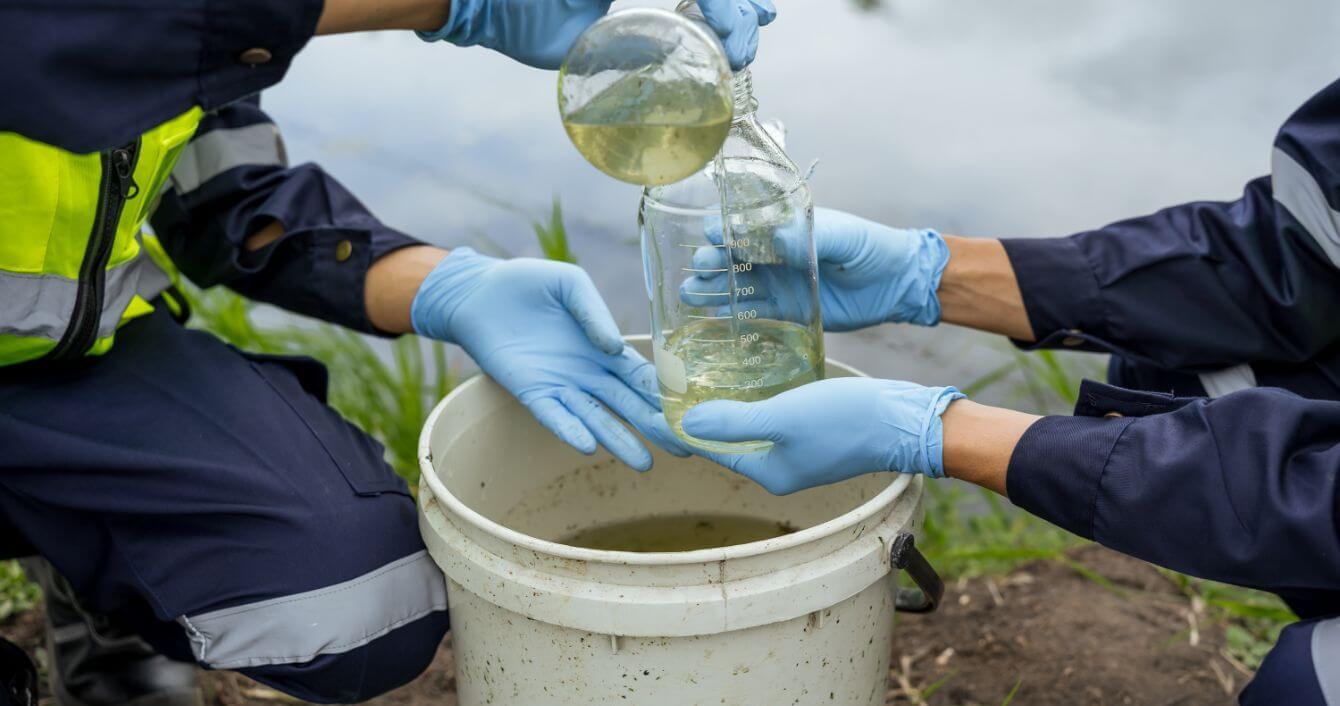In today's rapidly changing world, careers in environmental sustainability and occupational health, and safety have become more critical than ever.
As the global population grows, industries expand, and natural resources deplete, there is a need for professionals who can ensure that human activities are carried out responsibly and sustainably. A degree in environmental, health, and safety equips individuals with the knowledge and skills necessary to address these pressing challenges.
What is Environmental, Health, and Safety?
Environmental, health, and safety, sometimes referred to as EHS, is a multidisciplinary field that focuses on ensuring the well-being of individuals, the protection of the environment, and compliance with health and safety regulations in various settings, including workplaces, communities, and public spaces. EHS professionals work to prevent accidents, injuries, illnesses, and environmental harm by identifying and mitigating risks and promoting responsible practices.
Environmental Health and Safety Degrees
Pursuing a degree in environmental sustainability health and safety equips individuals with the knowledge and skills needed to address pressing global challenges. Graduates are prepared for an in-demand career with diverse opportunities that will have an impact in the world.
RIT’s environmental sustainability, health, and safety BS is one dynamic degree with two robust areas of study. This major provides you with an in depth understanding of:
- Environmental Sustainability: Helping organizations (universities, school districts, counties, companies, environmental consulting groups, etc.) identify, implement, and champion efforts to lower their carbon footprint and make their products, processes, organizations and industries cleaner and more environmentally friendly.
- Occupational Health and Safety: Protecting workers from hazards, accidents, illness, and harm while working in plants, product warehouses, and manufacturing facilities.
On the surface, these two disciplines may not seem interconnected but in reality, most organizations have dedicated teams comprised of professionals from both areas who work together to positively impact both people (the safety side) and the planet (the environmental side).

What is Environmental Sustainability?
Environmental sustainability is a multifaceted concept that revolves around the idea of maintaining and improving the quality of our environment while simultaneously meeting the needs of the present without compromising the needs of future generations. It encompasses various dimensions, including:
- Ecological Balance: Ensuring that ecosystems thrive and biodiversity is preserved. This involves remediating past pollution, protecting natural habitats, conserving species, and mitigating human-induced environmental damage.
- Resource Conservation: Efficiently using natural resources such as water, energy, and minerals to reduce waste and minimize environmental impact.
- Reducing Pollution: Implementing measures to reduce pollution and waste generation, which includes controlling emissions, proper waste disposal, and promoting recycling.
- Climate Action: Addressing the challenges of climate change by reducing greenhouse gas emissions and promoting renewable energy sources.
- Social Responsibility: Engaging communities and stakeholders in sustainable practices, promoting equitable access to resources, and ensuring that sustainable development benefits all.
What is Occupational Health and Safety?
Health and safety, often referred to as occupational health and safety, focuses on safeguarding the well-being of individuals in various settings, including workplaces, public spaces, and even homes. Key aspects of health and safety include:
- Risk Assessment: Identifying potential hazards and evaluating the associated risks to mitigate accidents and illnesses.
- Regulatory Compliance: Ensuring adherence to local, national, and international health and safety regulations to protect individuals and the environment.
- Emergency Preparedness: Developing strategies and plans for responding to emergencies, such as fires, chemical spills, or natural disasters, to minimize harm and facilitate recovery
- Promoting Health: Encouraging practices that enhance physical and mental well-being, including ergonomic design, stress management, and nutrition programs.
- Training and Education: Providing knowledge and skills to individuals and organizations to promote safe and healthy practices.
Careers with a Degree in Environmental Health and Safety
Environmental health and safety professionals play a critical role in various industries, including manufacturing, construction, healthcare, energy, transportation, and more. A degree in environmental sustainability, health, and safety opens doors to a wide range of career opportunities. Here are some of the key roles in these fields:
Careers in Environmental Sustainability:
- Environmental Consultant: Advising organizations on reducing environmental impact and ensuring compliance with regulations.
- Sustainability Manager: Overseeing sustainability initiatives within organizations, focusing on resource conservation and corporate social responsibility.
- Renewable Energy Specialist: Leading the transition to renewable energy sources by designing, installing, and maintaining renewable energy systems.
- Environmental Health Officer: Investigating environmental factors impacting public health and developing prevention strategies.
- Environmental Scientist: Environmental scientists conduct research to understand environmental issues and develop solutions. They may specialize in areas such as air quality, water management, or soil conservation.
- Remediation Specialist: Taking water, soil, and air samples to identify areas of pollution, and designing appropriate remediation strategies to restore those ecosystems to their natural state.
- Conservation Biologist: Conservation biologists work to protect endangered species and ecosystems. They engage in research, habitat restoration, and advocacy efforts to preserve biodiversity.
- Renewable Energy Specialist: These professionals are at the forefront of the transition to renewable energy sources. They work on the design, installation, and maintenance of solar, wind, and hydroelectric systems.
Careers in Occupational Health and Safety:
- Occupational Health and Safety Specialist: Identifying workplace hazards, assessing risks, and implementing safety programs to protect employees.
- Industrial Hygienist: Ensuring safe work environments by identifying and controlling workplace hazards such as chemical exposure, noise, and ergonomics.
- Emergency Management Director: Coordinating emergency response efforts during disasters to protect communities and minimize damage.
- Public Health Inspector: Ensuring compliance with health and safety regulations in various establishments, including food safety and healthcare facilities.
- Environmental Health Officer: These officers work at the intersection of environmental sustainability and health. They investigate environmental factors that impact public health and develop strategies for prevention.
- Safety Engineer: Designing and implementing safety protocols, equipment, and systems to prevent accidents and injuries.

Gaining Hands-on Experience in Environmental Health and Safety
Choosing the right university to pursue an EHS degree is crucial, and the inclusion of cooperative education (co-op) can significantly enhance the educational experience.
What is Cooperative Education?
There’s a reason RIT has one of the best university co-op programs in the world. We have been offering a college co-op program for more than 100 years. We value the preparedness and practice co-ops and internships provide, and the myriad ways that it benefits all. Simply put, cooperative education and internships are the career experience that converts knowledge into know-how, skills into expertise, and thinkers into doers.
You’ll alternate blocks of co-op with semesters of on-campus study. On co-op, you’ll work in industry learning the ins and outs of professional life in your degree field. RIT’s co-op program is designed for you to gain real career experience by completing meaningful projects and assignments for your co-op employer, work that contributes to a company’s objectives and goals.
Benefits of Co-op for Environmental Sustainability Health and Safety
With cooperative education (co-op) you’ll earn more than a degree. You’ll gain real-world career experience that sets you apart. It’s exposure–early and often–to a variety of professional work environments, career paths, and industries. Co-op takes your knowledge and turns it into know-how, providing you with hands-on experience that enables you to apply your packaging science knowledge in professional settings while you make valuable connections between classwork and real-world applications.
- Real-World Experience: Co-op experiences provide you with practical, hands-on exposure to the challenges and opportunities in EHS, allowing you to apply classroom knowledge in real-world scenarios.
- Networking Opportunities: Build professional networks, connect with potential employers, and gain insight into various industries and organizations.
- Enhanced Employability: Real-world, hands-on experiences are more attractive to employers, as they illustrate both your academic knowledge and practical skills.
- Career Clarity: Clarify your career goals and interests within the EHS field, which can help you feel confident about your career path and your professional aspirations.
Renowned for its cooperative education, RIT provides students with the opportunity to work with industry-leading organizations, government agencies, and nonprofit institutions. Students gain practical experience, apply classroom knowledge to real-world situations, and build a strong foundation for their future careers. This unique approach enhances their employability and contributes to their personal and professional growth.
Your Future in Environmental Health and Safety Awaits
According to the Bureau of Labor Statistics, environmental and occupational health and safety are in-demand careers with a projected growth rate higher than the average occupation. An environmental health and safety degree equips you with the vital skills for this booming career field and prepares you to tackle pressing global challenges related to environmental sustainability, health, and safety. Get ready to play a pivotal role in protecting our planet and communities while enjoying diverse career opportunities.










